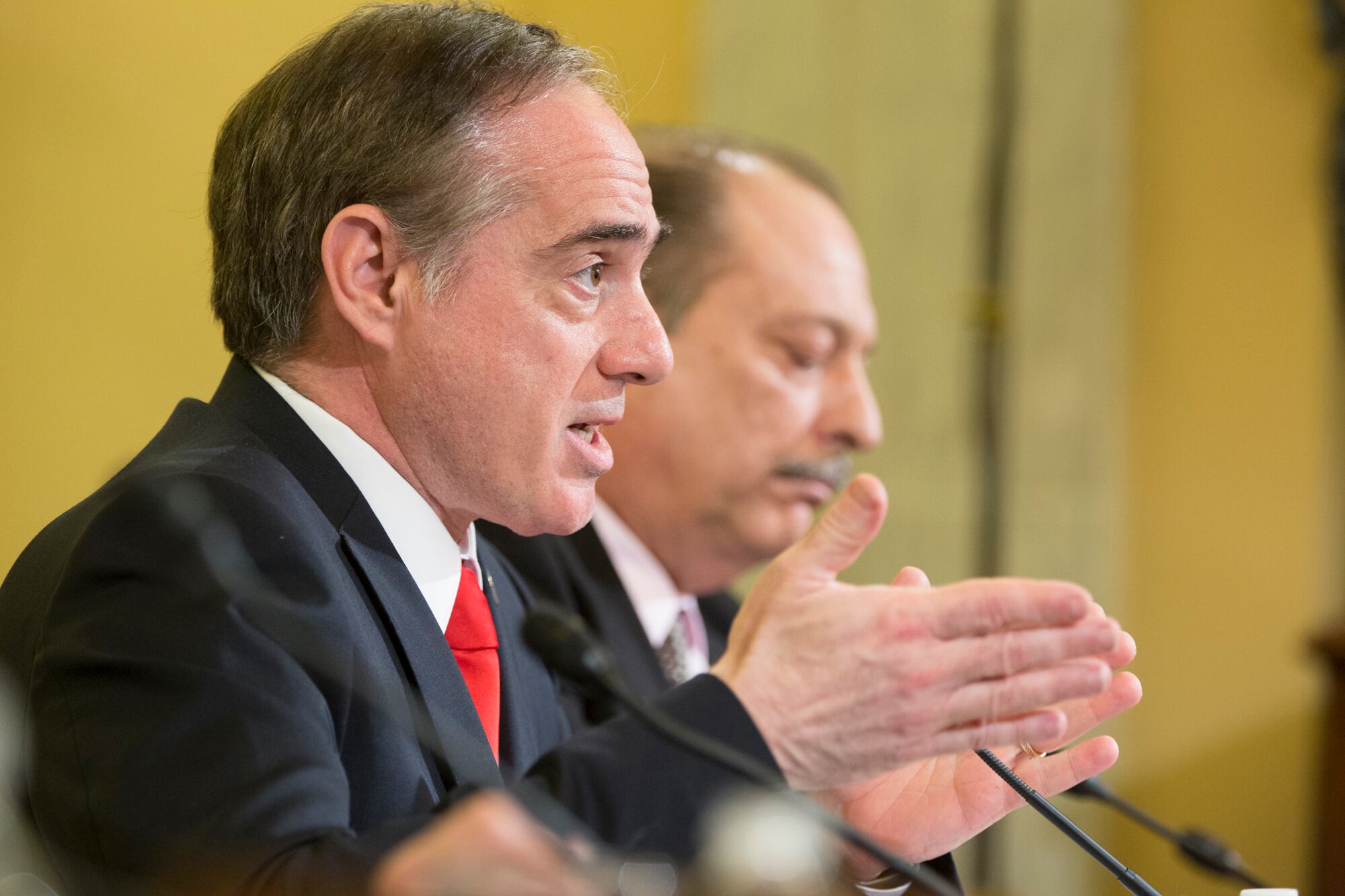WASHINGTON — Veterans Affairs Secretary David Shulkin said he is open to adopting the new military electronic health record system for his department but stopped short of promising that will happen this summer.
"We're exploring all options," Shulkin told members of the House Appropriations Committee on Wednesday. "It's a highly complex issue ... if there was an easy solution here, it would have been made already."
The comments came in response to criticism from lawmakers related to the ongoing health records saga, a point of tension for the departments for decades. Committee members noted that more than $1 billion has been invested in medical record interoperability in recent years but with mixed results.
"We've been giving you all a lot of money, and it's not fixed," said Rep. Tom Rooney, R-Fla. "You could be the best VA secretary of all time if you solved this one problem."
At issue is the seamless medical transition of active-duty troops and reservists to VA care. Veterans have long lamented missing records, repeated exams and frustrating inefficiencies with the dueling department systems.
Last year, defense and VA officials certified that their Joint Legacy Viewer now allows physicians in both departments to share and read those critical health records, eliminating many of those problems.
But the separate back-end systems still prevent VA doctors from editing or updating veterans' old military records, and vice versa. Shulkin acknowledged that "it is not the complete interoperability we would hope for."
Earlier this year, officials with the Military Health System announced plans to shift to the new GENESIS system for all personal military health records, allowing easier access for both patients and doctors.
Shulkin said he hopes to settle on a similar new system for VA this summer. He said a number of factors will go into that decision, including long-term viability of the new system, ease of transferability from old systems and interoperability with defense records.
But VA officials have long been resistant to simply adopting the same IT systems as the military because of specific agency needs. Lawmakers pushed Shulkin to break that trend, but he would not commit to any system at the hearing.
He did say that "VA needs to get out of the software development business" and will be looking for more private sector "off-the-shelf" options for health record systems, to minimize the workload of maintaining any future health records systems.
"It’s not an easy project in a single hospital, much less a whole system the size of VA," he said.
Shulkin’ appearance before the committee was billed as a conversation about next year’s budget request, but so far only a few details of that plan have been released publicly. A full budget is expected to be released by White House officials later this month.
The department would see a 6 percent boost in programming funds under the "skinny budget" outlined by President Trump, one of only a few federal agencies looking at a funding boost under his plan.
Committee members told Shulkin to expect many more questions about the health records issue after the fiscal 2018 specifics are released
Leo Shane III covers Congress, Veterans Affairs and the White House for Military Times. He can be reached at lshane@militarytimes.com.
Leo covers Congress, Veterans Affairs and the White House for Military Times. He has covered Washington, D.C. since 2004, focusing on military personnel and veterans policies. His work has earned numerous honors, including a 2009 Polk award, a 2010 National Headliner Award, the IAVA Leadership in Journalism award and the VFW News Media award.




